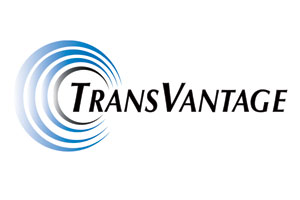Carriers Seek Dismissal of Suits Filed by TransVantage Bankruptcy Trustee

More than 265 carriers, including dozens from the Transport Topics Top 100 list, are seeking to dismiss claims by the trustee for bankrupt freight payment firm TransVantage.
The carriers’ July 24 court filing seeking to dismiss the bid from Trustee Alfred Giuliano was the latest step in a case that began three months ago, when Giuliano’s attorneys sued approximately 500 carriers seeking more than $600 million. The suits claimed that TransVantage, based in Branchburg, New Jersey, ran a Ponzi scheme by improperly commingling money collected from customers into a single account.
Giuliano said in court filings that the lawsuits against the carriers were needed to recover the money, which should have been put into separate accounts, because it was impossible to know whether accurate payments were ever made.
The targeted truckers and logistics companies of all sizes include UPS Inc., FedEx Corp., J.B. Hunt Transport Services Inc. and Con-way Inc., the four largest carriers on the Transport Topics Top 100 list of for-hire carriers in the United States and Canada. The trustee is seeking a total of more than $100 million from UPS and FedEx alone. Other individual fleets are targeted for as much as $30 million.
“Everybody on all sides of this, other than the trustee, is united in the fact that these are unfounded allegations,” said Rafael Zahralddin, who is representing Estes Express Lines and is one of 50 attorneys participating in the motion. “The fact that we all agreed on the legal premises to dismiss this case is significant.”
Estes is No. 15 on the for-hire TT100.
Attorneys at Fox Rothschild, a Philadelphia-based law firm that filed the lawsuits against the carriers, did not return calls and messages seeking comment.
The trustee has until Sept. 15 to file a response to the motion to dismiss, under the schedule established by U.S. Bankruptcy Court Judge Kathryn Ferguson.
The 62-page brief in favor of dismissal followed several lines of argument, including a common factor.
“Each of the complaints suffers from the same fundamental flaw: The Trustee cannot [cancel] transfers of property that TransVantage never owned and instead — as he admits in the complaints — simply held in trust,” the brief stated.
Other arguments by the companies seeking dismissal attacked the trustee’s claims that TransVantage was running a Ponzi scheme.
One argument contended that there was no Ponzi scheme because none of the carriers profited from another’s investment, which occurs in the type of fraud known as a Ponzi scheme.
Still another related argument was the claim by the carriers that the trustee’s allegations did not fit the narrow legal definition of that investment scheme.
While more than half of the companies that the trustee sued joined the motion to dismiss, approximately 130 cases have been settled or dismissed.
Five Top 100 carriers chose to settle under terms that weren’t disclosed. The largest was Old Dominion Freight Line, No. 11 on the for-hire TT100.
The remaining suits are in some other stage, such as discovery or mediation.
The carriers’ filing last month also outlined the way the payment process was supposed to work, and how it didn’t.
“Each customer . . . would provide TransVantage with funds in trust that TransVantage was required to disburse promptly to that customer’s carriers,” the motion said.
“Instead of fulfilling these obligations, however, TransVantage’s principals used more than $40 million from the customer trust fund account for personal expenditures and other improper purposes.”
In a pending criminal case against TransVantage owner Shirley Sooy, the U.S. attorney’s office in New Jersey listed property allegedly obtained by Sooy with TransVantage’s money. Included was a $135,000 Maserati sports car, a yacht, Florida property and other assets.
The brief also noted that when a company such as TransVantage is “a mere conduit or disbursing agent” to transmit funds, the bankrupt company’s estate isn’t entitled to the money because it never “controlled” the property.
Zahralddin also said “this is a huge bonanza for the trustee without any distribution back to the estate.”
The motion also notes that if the trustee wins the case, “recoveries will largely round trip back to the [carriers], but less a surcharge for the trustee’s efforts.”
Two other claims were made by the carriers, which joined the suit that was filed by 14 shippers, including New York utility Con Edison.
“The complaints also establish that the payments the trustee seeks to [cancel] were made in the ordinary course of business, providing a further basis for dismissal,” the motion said.
In addition, the motion notes that some of the funds the trustee is seeking can’t be recovered because the transactions were made more than 18 months before the bankruptcy petition was filed in May 2013.

